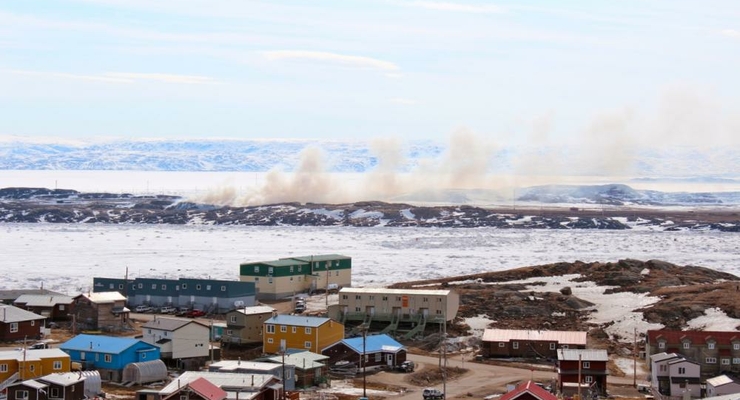Q&A Iqaluit landfill fire

Public Service Announcement
Q&A Iqaluit landfill fire
Start Date: May 23, 2014
End Date: May 25, 2014
Iqaluit, NU 120 sec
People in Iqaluit may have questions about the dump fire and what to do if smoke drifts over the city. Here are some helpful questions-and-answers from the Department of Health:
Q: Who should be concerned about smoke from the dump fire?
A: There may be times when smoke from the dump fire comes towards the city. Depending on the level of smoke, some people may be more at risk than others to health effects from the smoke. This includes people with heart or lung conditions, infants, young children and the elderly.
Q: What can I do to reduce my exposure to the smoke?
A: People who might be affected can reduce their exposure to smoke by staying indoors as much as possible, with doors and windows closed, and air exchangers turned off. If you have to go outside, limit physical activity.
Q: What is in the smoke coming from the dump fire?
A: The smoke contains a mixture of chemicals and fine particles. The types and amount of particles and chemicals in the smoke varies depending on what is burning and the burn temperature.
Q: What symptoms should I look for?
A: You should watch for wheezing, shortness of breath, difficulty taking a full breath, tightness in your chest, light headedness and dizziness. The smoke may also irritate your eyes, nose and throat.
Q: What should I do if I develop symptoms, like trouble breathing or tightness in my chest, related to the smoke?
A: If you feel unwell and can’t manage your symptoms on your own, you should seek medical attention.
Q: Will the Department of Health close schools, offices and other buildings because of the smoke?
A: It is unlikely that public buildings and schools will close because of the smoke. Building owners need to be prepared to manage air ventilation systems to limit smoke coming in and to make their own decisions about closures. The Department of Health will get involved on a case-by-case basis, if necessary.
Q: Is the Department of Health working with other agencies?
A: The department is working closely with the Departments of Environment, Community and Government Services as well as other agencies to monitor the situation and support the City of Iqaluit in managing the situation as best as possible.
###
Media Contact:
Ron Wassink
Communications Specialist
Department of Health
867-975-5710